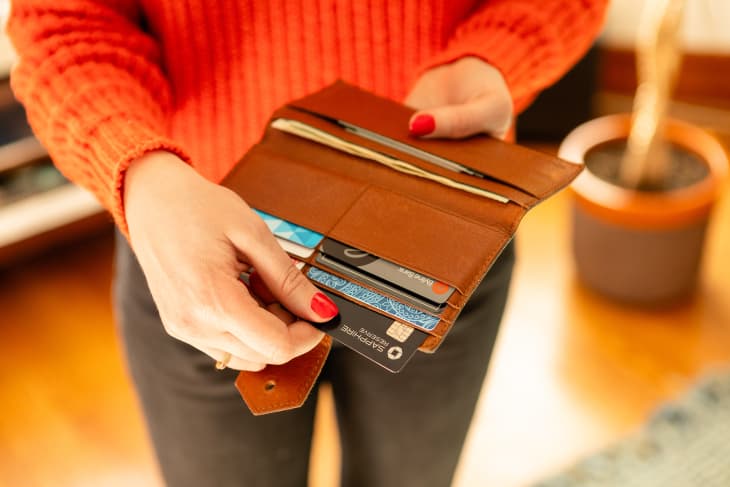The One Thing You Should Never Do If You’re Planning to Buy a House, According to a Mortgage Lender

Think back to the last time you bought a lot of stuff at a big-box store. Chances are, the cashier asked you if you wanted to open a store credit card to save money on your purchase. Tempting, right? A store credit card isn’t necessarily a bad idea, especially if you’ll save a considerable amount of money or if you shop at the store often. But if you’re planning to buy a house anytime soon, you may want to rethink opening new lines of credit or making big purchases.
Cassidy Gard experienced exactly how a new store credit card can get in the way of buying a house. In a now-viral TikTok, she shared that a Home Depot cashier convinced her to open up a store card for a $9 can of paint. (Gard, a producer, says she normally never opens up new credit cards, but this time she did it to help the cashier.) Sadly, her good deed decreased her credit score by 100 points — and ultimately prevented her from getting a mortgage to buy a house.
If you’re not familiar with the lending process, here’s a quick primer: Before loaning you a potentially large sum of money, banks want to make sure you’re in good financial standing. So an underwriter checks your credit score and confirms your employment and income with the goal of assessing how likely you are to pay back the loan. These factors can affect your interest rate and how much money you can borrow, but they can also determine whether you can take a loan in the first place.
According to Melissa Cohn, regional vice president of William Raveis Mortgage, opening a new credit card in the middle of a mortgage application is one of several things that can impact your ability to get approved, and there are a few reasons for that. “The lender will want to know the source of the credit inquiry and any credit obtained as a result, then take 5 percent of the credit limit of your new card as a monthly obligation that can throw off your debt-to-income ratios and cause you to get declined,” Cohn says.
The new inquiry can also lower your credit score, which can potentially give you a higher interest rate — or, if it’s below the minimum credit score required for the lender, then you can potentially get turned down altogether (like Gard). Other debts, Cohn says, such as car loans or store loans, can also be a dealbreaker. Making large purchases, even if you have the money, or withdrawing from your accounts can interfere with the mortgage process, too.
For Gard, the timeline was a little different: She had opened a Home Depot card in May, and forgot about it while traveling, leaving her with an unpaid balance that ultimately drained her credit score enough to prevent her from getting a mortgage. It’s not clear from TikTok whether Gard eventually got the mortgage or not, but either way, she wishes she’d have never opened up the card to begin with. If you’re also planning to buy a house, she urges you not to make the same mistake. The risk gets exponentially higher if you’re already in the process, so Cohn says it’s best to be extra careful. “Clearly, if you are in the middle of applying for a new mortgage it is key to not apply for any other credit at the same time,” she says.